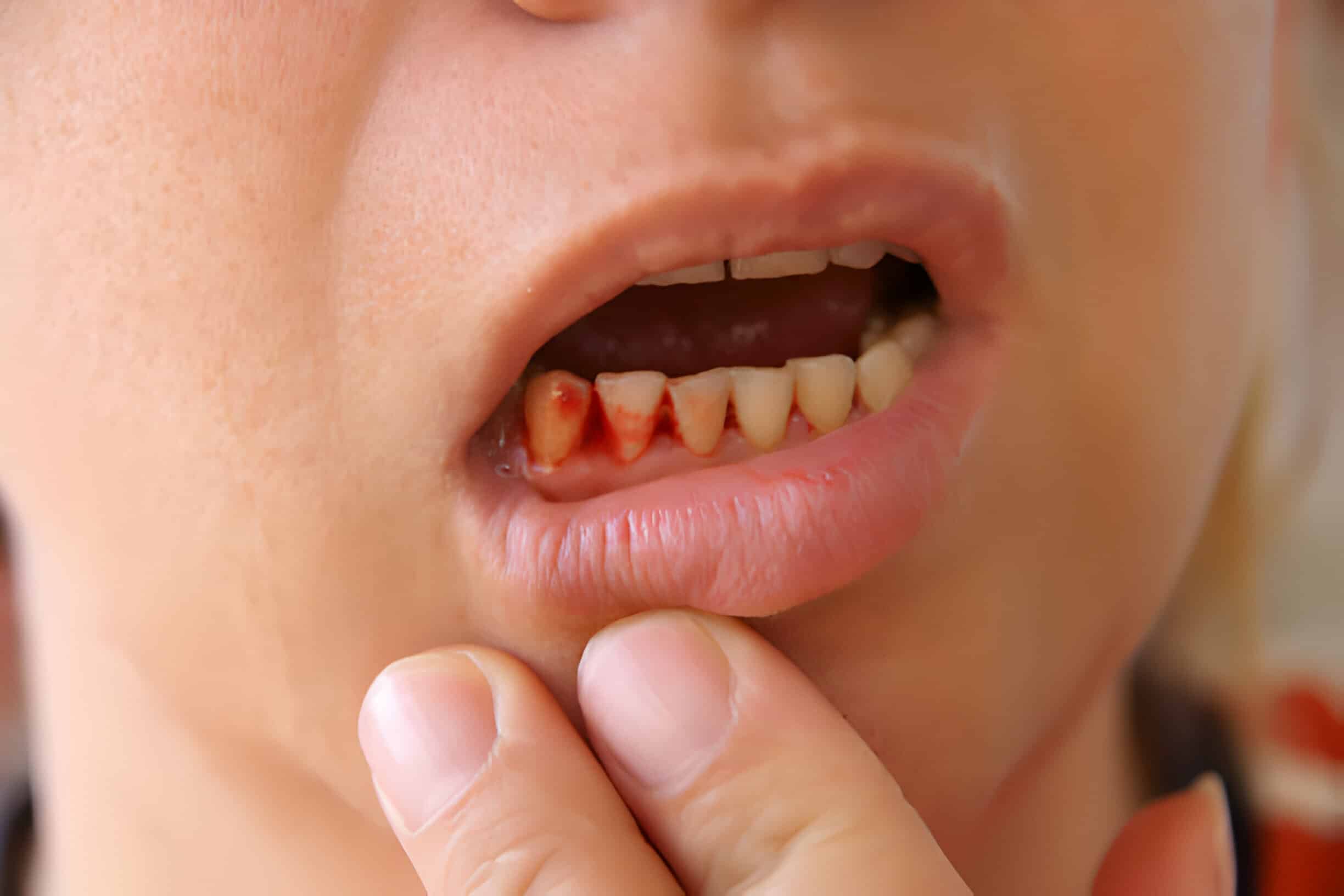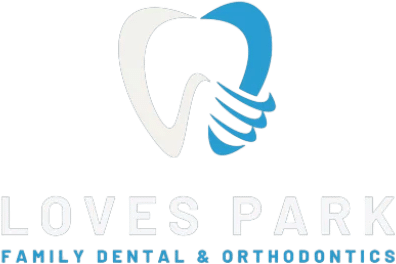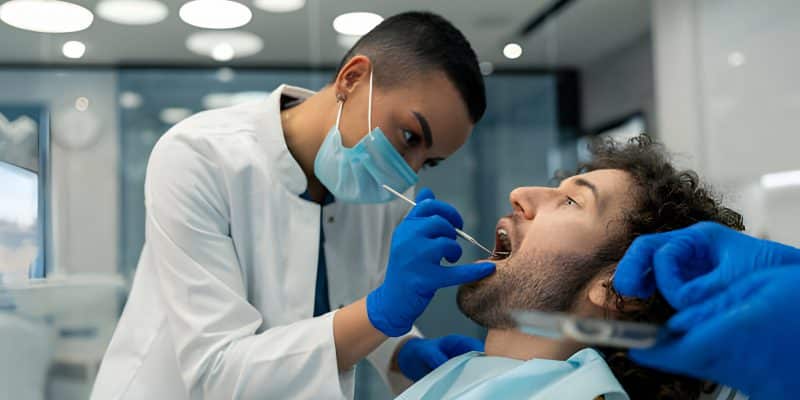Summary
How often do you expect your doctor to ask about the health of your gums?
While this might come as a surprise, rarely do doctors ask about your gum health unless you’re visiting a periodontist.

Gum health plays a crucial role in maintaining your overall health. Stats suggest that over 47.2% of all adults aged 30 years or older have some form of gum disease. When left untreated, such conditions turn out severely life-threatening.
In this blog, we take a closer look at different preventions for gum tips by looking at:
- Gum Health & Diseases – The Associated Risk Factors
- Unevaluated Gums – How Periodontal Diseases are Formed
- Different Types of Periodontal Diseases
- How To Prevent Gum Problems – 6 Ways to Stay Healthy
Continue reading as we learn more about different periodontal problems and how to avoid them in the following sections.
Gum Health & Diseases – The Associated Risk Factors
Gum diseases are often linked to a variety of health issues. However, evidence for many of these has been ambiguous. However, there is increasing evidence that oral cavity disease may be a risk factor for the following health conditions:
- Lung conditions
- Heart disease
- Arthritis
- Stroke
- Diabetes
- Complications in pregnancy
This is particularly concerning given that gum disease is avoidable. However, when cared for by gum specialists, you can easily prevent these problems largely. Let’s learn more about it in the following sections.
Unevaluated Gums – How Periodontal Diseases are Formed
There are various reasons why your gum health and the rest of your body may be linked. To comprehend this, we must first comprehend how disease arises.
Your gums shield your teeth and the tissues that support them. If you don’t brush and clean your teeth regularly, germs, mucus, and food particles can accumulate and create a film known as dental plaque.
It infiltrates the narrow area between your gums and teeth, causing inflammation of the gums around your teeth, causing them to swell and bleed, also referred to as oral cavity disease. If you come across such a situation, visit your nearest periodontics dentistry at the earliest.
Different Types of Periodontal Diseases
-
Gingivitis
Gingivitis is the mildest form of gum disease caused by plaque accumulation on teeth. Plaque is a sticky bacterium film that accumulates on teeth and can cause irritation.
Gingivitis symptoms include red, swollen, and bleeding gums. Treat it as soon as possible to prevent it from evolving into a more serious type of oral cavity disease.
-
Periodontitis
Periodontitis is a dangerous gum disease that can harm the teeth, gums, and supporting bone permanently. It happens when plaque accumulates below the cavity line and produces an infection.
Symptoms of periodontitis include receding gums, loose teeth, and foul breath. Periodontitis treatment requires extensive cleaning methods like scaling and root planing, and in severe instances, you may require surgery.

-
Chronic Periodontitis
Chronic periodontitis is among the most prevalent gingiva diseases, characterized by increasing loss and inflammation of attachment between the gums and teeth. If left untreated, it can result in tooth loss and is often caused by poor dental hygiene habits and plaque and tartar development.
-
Aggressive Periodontitis
Aggressive periodontitis is a kind of periodontitis that often affects younger people and is characterized by fast deterioration of the gums and bones that support the teeth. A hereditary susceptibility to the condition causes it and, if left untreated, can result in tooth loss.
-
Periodontal Abscess
A periodontal abscess is a small collection of pus that develops in the gums or bone that supports the teeth. A bacterial infection usually causes it and can be excruciatingly painful. This issue is generally treated by draining the pus and giving medicines.
-
Refractory Periodontitis
Periodontitis refractory is a kind of gingiva disease that is resistant to therapy. It happens when the microorganisms that cause the disease are resistant to drugs or when there are underlying systemic problems that make infection control difficult. Refractory periodontitis therapy may include a mix of surgery and antibiotics, among other sophisticated treatment techniques.
How To Prevent Gum Problems – 6 Ways to Stay Healthy
-
Floss
Floss your teeth at least once a day. It helps eliminate plaque and food that your toothbrush cannot reach. It makes no difference when you floss. Gum specialists suggest that you can do it anytime, at night, in the morning, or after lunch.
-
Get regular dental cleanings
If you visit your dentist regularly, they can discover early signs of oral cavity disease. It helps you get rid of symptoms before they worsen and also removes any plaque that you missed when flossing or brushing. Flossing, brushing, and frequent dental cleanings can help reverse gingivitis.
-
Quit smoking
Another incentive for smokers to quit: smoking is highly linked to the development of oral disease. According to the CDC (Centers for Disease Control and Prevention), smoking affects your immune system, making it more difficult to fight off a gingival infection. Smoking makes it more difficult for injured gums to recover.

-
Brush twice a day
After each meal, brush your teeth! It aids in the removal of food and plaque that has become trapped between your gums and teeth. Scrub your tongue as well, as it might house bacteria. Besides, start using a toothbrush with soft bristles which fits comfortably in your mouth.
-
Use fluoride toothpaste
When it comes to toothpaste, several kinds on the market claim to alleviate whitening teeth, freshen breathing, and gingivitis. How can you know which is ideal for maintaining healthy gums? Ensure you use fluoride-containing toothpaste with the ADA mark of approval.
-
Use a therapeutic mouthwash
Therapeutic mouthwashes, which are usually available over the counter, can help decrease plaque, prevent or minimize gingivitis, slow the formation of tartar, or a combination of these advantages. The gums doctor suggests a thorough rinse as it helps in the removal of food particles and debris from your mouth.
-
Maintain a healthy diet
Consume a well-balanced diet that includes whole grains, fruits, lean meats, and vegetables. Sugary and starchy meals should be avoided since they can lead to plaque accumulation and raise the risk of disease. Drinking enough water also aids in the removal of germs and keeping your mouth moisturized.
-
Quit smoking
Smoking is a major risk factor for gingiva disease. It lowers the immune system, reduces blood supply to the gums, and hinders healing. Quitting smoking can improve the health of your gums dramatically.
-
Manage stress
Dentist gum specialists suggest that stress can deplete your immune system, making it more difficult for your body to fight against diseases. Find healthy strategies to cope with stress, such as regular exercise, relaxation techniques, or getting help from friends and family.
Takeaway
- Caring for your gums is a necessity! When left untreated, it might result in severe periodontitis.
- Connect with your nearest dentist in Loves Park, IL, as soon as you come around with a gum infection of any type.
- It would help if you consume a well-balanced diet, brush twice a day, and quit smoking to maintain healthy gums.
- Don’t ignore the symptoms of possible gum disease; connect with our experts at Loves Park Family Dental to make the most of your smile today!

